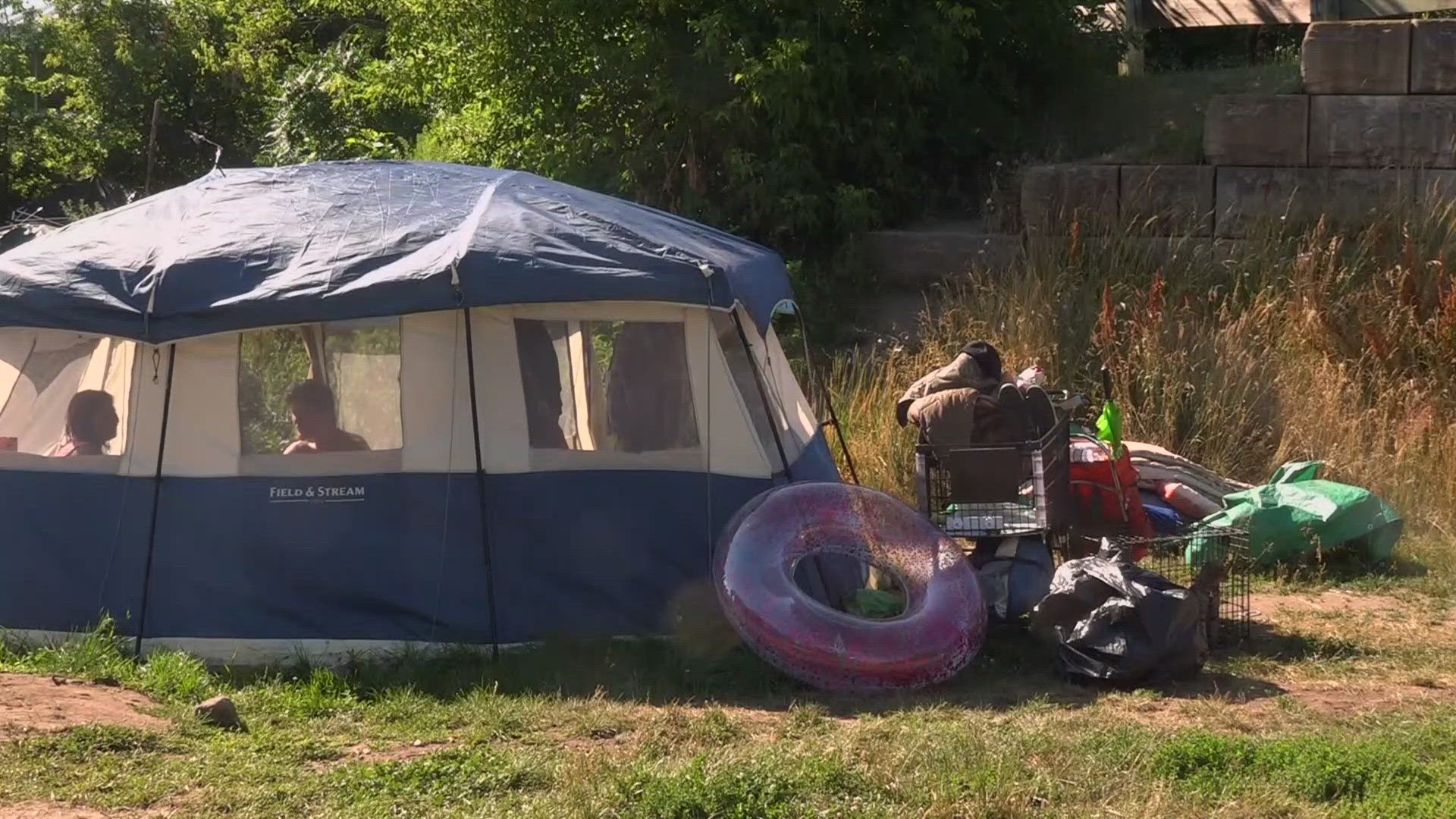BIDDEFORD, Maine — Liz Levan isn't running from anything, but she said the way she is being treated makes her feel like a fugitive.
"I don't want to get arrested just for trying to survive," she said. "You know what I mean?"
Levan said she was evicted from her home a few weeks ago, forcing her to find solace at the Water Street encampment in Biddeford.
"We were just kind of dealt a crap hand, really," she said.
The city planned to clear the encampment Monday, July 8, at a critical time for Levan's family.
"I am five months pregnant," she told NEWS CENTER Maine, just one day before the planned sweep.
Levan said she was worried about the future, now that she, her partner, and her future child are once again being displaced. She said she was waiting to see if her case manager can get them temporary housing by Monday, before she is forced to leave.
"She's doing everything she can, but she can only do things so fast," Levan said of her case manager. But with such a tight deadline, Levan said other options are limited.
"We could maybe go to Seeds, but I don't want my partner and I to be separated," she said.
Seeds of Hope Neighborhood Center is Biddeford's solution to the problem, but the shelter was something Levan didn't see as an adequate option for her growing family, and she's not the only one.
"Why move them now when you've allowed them to be here for over a year? Seven days a week, even holidays, and we clean, the unhoused help clean," Tammy Harvison said. "It may not be all hunky dory down here, but everybody's in one location."
Harvison has been doing outreach at the Water Street encampment since last December. The lack of needles and garbage at the Water Street encampment is largely attributed to her work.
Harvison runs a nonprofit, The White Butterfly "with a cause," and is at the encampment most of her days, bringing supplies and helping the unhoused find resources to help them transition back into society. However, Harvison worries this move will disrupt her hard work.
"I'm assuming like 30 to 45 people are going to be in disarray, and that scares me," she said.
Harvison said the number of residents used to be in the high 70s range, but many of them have already left ahead of the sweep.
"This is going to hurt people, displacing them, because now we don't know where they're at and somebody could die. I hope for the best, [that] we make it out with all of them alive and that we don't lose anybody, because that will be on the city's hands," she added.
NEWS CENTER Maine spoke with Biddeford Mayor Marty Grohman back in June, when the plan to clear the encampment was first approved by city councilors.
"We don't want anyone living outside in Biddeford," Grohman said.
He said he does not consider living outside a "healthy existence" and is committed to making a long-term investment to end homelessness in Biddeford. By offering 60 beds at Seeds of Hope, city leaders said they're giving unhoused people a safe shelter option with a long-term goal of moving everyone toward stability.
Folks like Harvison see this as a cop out.
"I think that Seeds of Hope is great for the community," she said. "Do I think it's good for this? Absolutely not. They can't handle the magnitude of the amount of people that are unhoused."
Seeds of Hope was not designed as a shelter but as a community center, she said, and using it as housing is a temporary solution. Harvison argued the city should be offering something more permanent.
"One of these empty buildings around here, god knows we have plenty of them. What about the old courthouses? Any of them," Harvison suggested. "Take one of these buildings and put a community center in it, house them and do everything they need in one big building."
"They had time to build something, like really build something. This is the best they could come up with?" Liz Levan said.
She, like many in the encampments, agree and believe they deserve better.
"It's not a one-size-fits-all problem," she said. "This isn't going to make homelessness go away."
City leaders said the clearing would be done carefully, and people living in the encampment would be connected with services, including health care and mental health support. Biddeford's general assistance program also would be working to help people find permanent housing.

